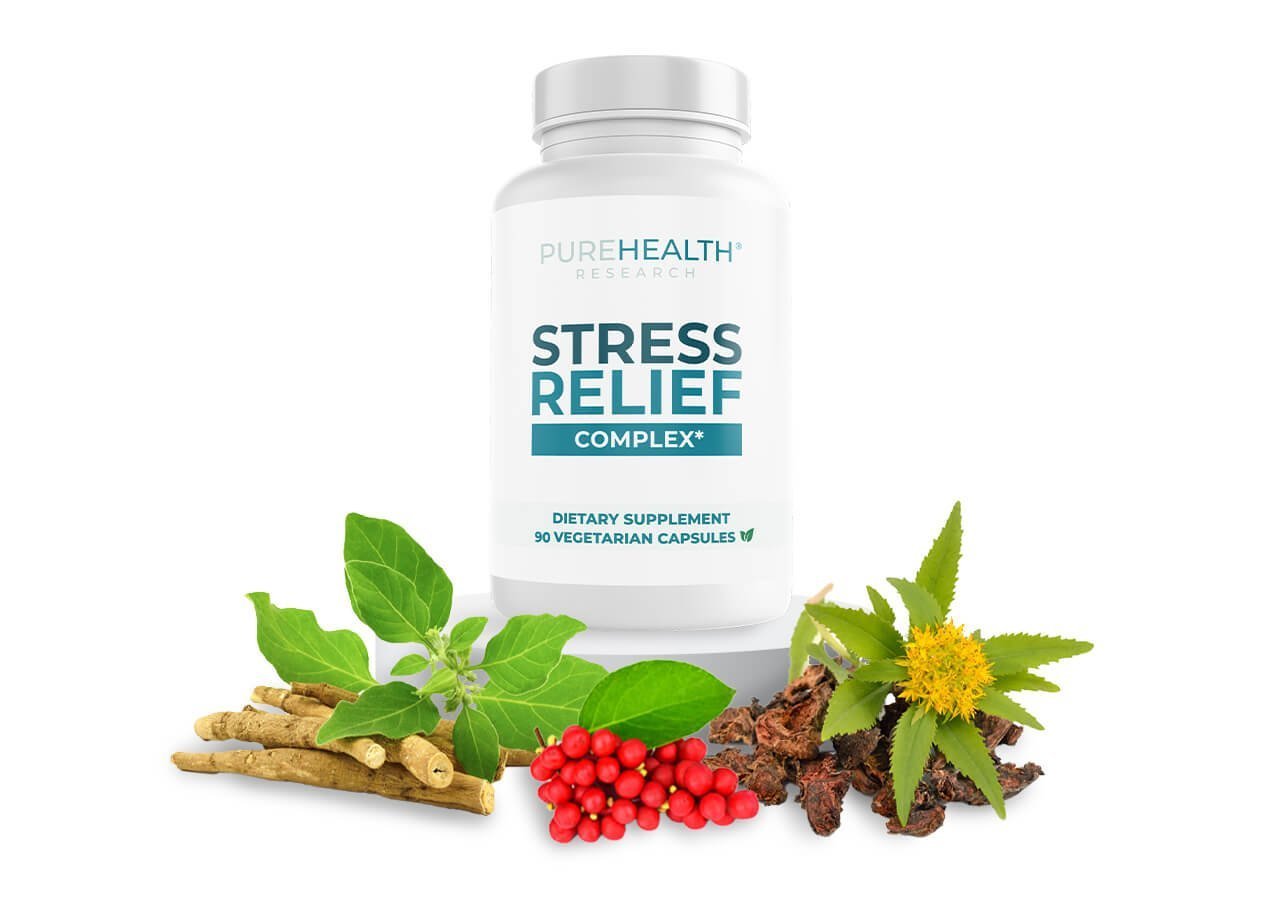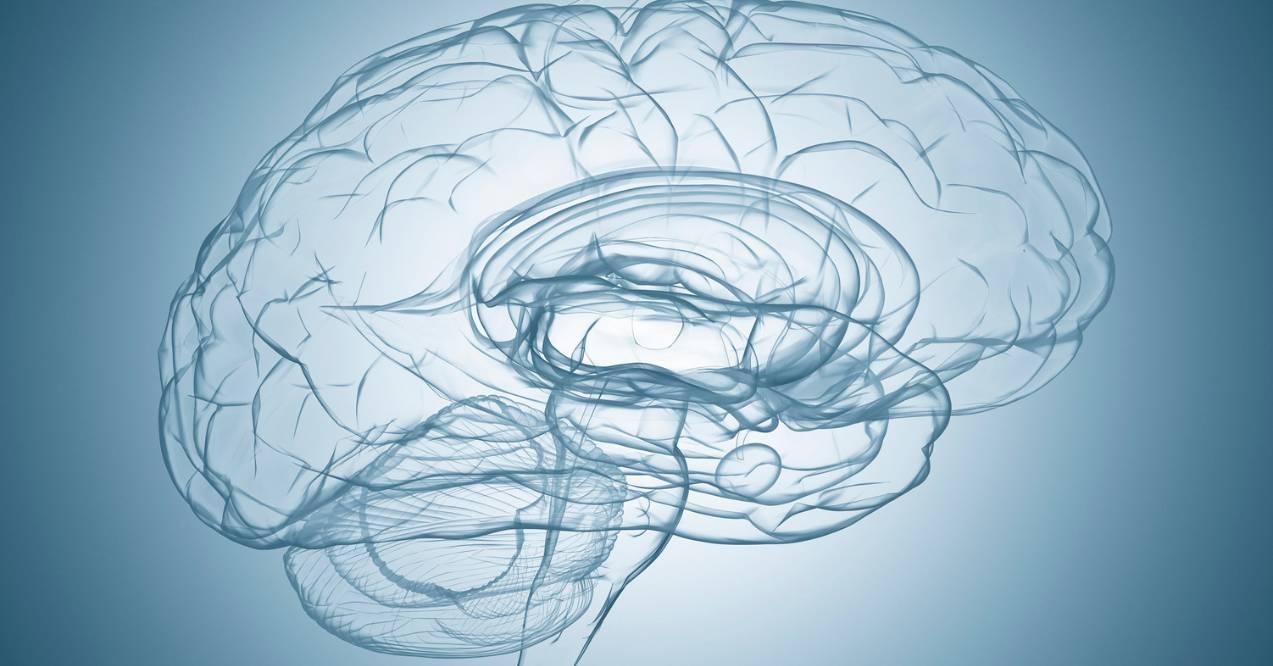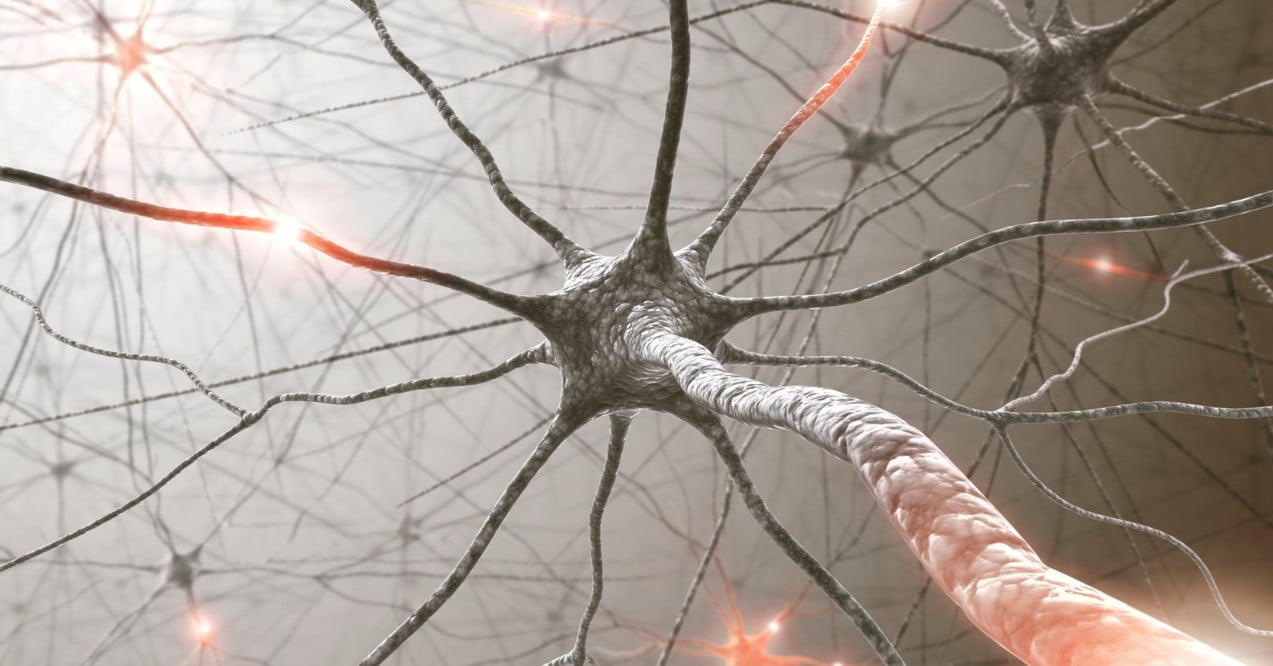Is Your Nervous System Stuck in Fight or Flight Mode?
Join us, as in this article we will discuss nervous system stuck in fight or flight symptoms and simple ways how to support yourself in the time of need.


The echo of a racing heart fills the silent room, a constant reminder of an unseen enemy. Every morning is a battle, where the first ray of sunlight isn’t a gentle kiss of warmth but a harsh spotlight highlighting an internal battlefield.
Feelings of distress is no longer an occasional unwelcome guest; it’s a constant companion due to a nervous system being stuck in fight or flight. Long gone are the days of peaceful slumbers and calm awakenings; in their place, an everlasting vigilance has taken place.
Every sound, touch, and gust of wind no longer filters through the consciousness as benign elements of daily existence but rather, they morph into triggers. Each one a potential threat, pushing the body into a state of heightened alertness.
Join us, as in this article we will discuss nervous system stuck in fight or flight symptoms and simple ways how to support yourself in the time of need.
How Your Body Responds to Stress

The nervous system has two main parts that work together but do different things.
The sympathetic system is like a gas pedal in a car. It helps us respond quickly when we’re in danger or stressed. Imagine walking home and suddenly seeing a stray dog barking at you. Your heart might beat faster, your breath quickens, and your muscles get ready to either run or face the situation.
When the danger is gone, another part of your body, the parasympathetic nervous system, works to calm everything down and bring you back to a relaxed state. The parasympathetic system is like a brake. It helps the body calm down and rest.
However, problems arise when the body is chronically stuck in the sympathetic, or ‘fight or flight’ mode. This chronic activation may lead to a series of health issues. The constant release of stress hormones like cortisol and adrenaline might wear down the body, leading to exhaustion.
Understanding the dual nature of our nervous system and the consequences of an imbalance is the first step towards your brain and mental health. Recognizing the signs of a sympathetic overload may pave the way for interventions, from lifestyle adjustments to professional help, aiding in the restoration of the body’s natural rhythm and flow.
Why Is Your Nervous System Stuck in Fight or Flight?
Your nervous system may often be stuck in ‘fight or flight’ mode due to a combination of modern and environmental stressors. In today’s world, pressures from work, financial uncertainties, and complex personal relationships continually bombard individuals, triggering the body’s stress response system.
These everyday challenges may evoke reactions similar to facing physical dangers, keeping the nervous system in an alerted state. Additionally, past traumatic experiences might play a significant role; the body remembers trauma and may react to present situations with the same intensity as past threats. This phenomenon is known as post-traumatic stress disorder, or PTSD for short. Environmental factors, including the lack of social support, may intensify this condition.
Without adequate help to process and mitigate stress, the nervous system remains engaged, struggling to shift from survival mode to a state of rest and recovery.
Nervous System Stuck in Fight or Flight: Symptoms and Treatments
There is no easy way to understand if your nervous system is stuck in fight or flight mode. However, there are symptoms to look out for if you are constantly feeling stressed. Before diving deeper into the symptom list, always remember to consult with your medical doctor if you are feeling unwell.
1. Increased Heart Rate and Arterial Pressure

The heightened heart rate ensures that more blood, enriched with oxygen and energy-supplying glucose, is pumped to the vital organs and muscles to prepare for quick action.
Simultaneously, the increase in blood force is caused by the constriction of blood vessels, which also aids in directing more blood to the essential parts of the body quickly.
While these reactions are crucial for immediate response to stress, chronic activation due to ongoing stress may have adverse effects on the cardiovascular system over time.
2. Hormonal Imbalance

Stress has a direct impact on our body’s hormonal balance. When we encounter stress, our body responds by releasing stress hormones like cortisol and adrenaline. While these hormones are essential for dealing with immediate threats, chronic stress might lead to their prolonged elevation in the bloodstream.
Over time, this might disrupt the balance of hormones in our body. Elevated cortisol levels, in particular, may inhibit the production and effectiveness of other hormones, including those responsible for mood regulation and metabolism.
This hormonal imbalance may lead to a range of potential issues including mood swings, weight gain, menstrual irregularities, and decreased immune function.
3. Unexplained Fatigue

Nervous system stuck in fight or flight response requires a considerable amount of energy. In a persistent state of stress, the body is constantly working overtime to manage the heightened alertness and physiological changes, which may lead to a depletion of energy reserves.
Moreover, chronic stress might interfere with sleep quality and patterns. Even if you are getting a full night’s sleep, ongoing stress may affect the restorative quality of sleep, leading to feelings of fatigue upon waking. The body’s natural rhythms may be disrupted, potentially impacting the ability to regenerate effectively.
Consequently, an individual under chronic stress might experience persistent, unexplained fatigue as the body struggles to recover and recharge amid the ongoing demands of stress.
4. Dry Mouth and Throat

When fight or flight response is activated it leads to various bodily changes to prepare for quick action. One of these changes includes the redirection of blood and fluid to essential organs and muscles that are crucial for responding to stress, and away from non-essential areas, including the mouth and digestive system.
As a result, saliva production may decrease, leading to the sensation of a dry mouth and throat. Additionally, breathing patterns often change under stress, with increased breathing through the mouth, which might further contribute to dryness.
It’s a natural and temporary response, but if stress becomes chronic, individuals may consistently experience dry mouth and throat as a recurring symptom.
5. Irritability

As we mentioned before, when the body is under stress, it releases hormones like cortisol and adrenaline. While these hormones prepare the body to respond to immediate threats, they might also affect the brain’s functioning, including the regions responsible for mood regulation and emotion processing.
As a result, individuals experiencing stress might find their tolerance levels are lower, and they become easily agitated or upset. Our body’s state of hypervigilance may lead to a hypersensitivity to environmental stimuli, making us more reactive than usual. This increased reactivity might manifest as irritability, where even minor annoyances or challenges are met with frustration or anger.

How to Calm the Fight or Flight Response
Recognizing these symptoms of intense stress and knowing how to calm the storm is essential. With the right approach, it’s possible to ease the nervous system into a more relaxing state. Nervous system stuck in fight or flight treatment starts with addressing both the immediate sensations and their long-term impacts on your body. Let’s explore ways to help yourself regain control and foster a sense of peace.
Tip 1: Functional Medicine
Functional medicine approach is highly personalized, ensuring each individual receives care that is tailored to their specific health needs and challenges. Functional medicine aims to restore balance to the nervous system through targeted nutritional, sleep, and exercise strategies, along with other lifestyle adjustments.
The goal is to enhance both physical and emotional well-being by fostering harmony and a well-regulated body environment. Functional medicine includes physical exercise, breathing techniques and specific dietary choices. We wrote down some of the techniques down below, if you would like to try them for yourself.
Tip 2: Physical Activity
Engaging in physical activity may be a way to shift the body out of the fight-or-flight mode. It helps in reducing the levels of stress hormones while increasing the production of endorphins, which are natural mood lifters
- Walking: A simple yet effective way to clear the mind, improve mood, and boost physical health. Nature walks, in particular, may provide the added benefit of fresh air and a change of scenery.
- Yoga: It combines breathing exercises, physical postures, and meditation to bring both the mind and body into a state of relaxation.
- Dance: Allows for physical expression of emotions. It provides a safe space where you may release pent-up feelings, transforming emotions into movements, which may be particularly relieving for stress and tension.
Tip 3: Deep Breathing
By taking deep, controlled breaths, the oxygen supply to the brain increases, promoting a state of calmness, and potentially reducing levels of cortisol. This practice not only relaxes the body but also aids in calming the mind, reducing feelings of distress and tension, and promoting a sense of well-being and mental clarity.
Here is a step-by-step instruction to one of the techniques called Box Breathing:
- Find a quiet and comfortable place where you won’t be disturbed.
- Sit or lie down in a relaxed position.
- Close your eyes to help you focus on your breath and reduce distractions.
- Exhale fully through your mouth, getting as much air out as you can.
- Inhale slowly and deeply through your nose while you count to four. Feel your lungs filling up with air.
- Hold your breath for another slow count of four.
- Exhale through your mouth for a count of four, releasing the air slowly and completely.
- Hold your breath for the same slow count of four after you’ve exhaled all the air.
- Repeat the process as long as needed to feel calm.
- After several cycles of box breathing, allow your breath to return to its natural rhythm.
- Pay attention to the calming effects on your mind and body. Sit quietly for a moment and pay attention to how you feel.
Tip 4: Healthy Diet
Integrating a variety of nutrient-rich foods into our diet might be a game changer.
- Foods high in Vitamin C like oranges and strawberries may support adrenal function and aid in reducing cortisol levels.
- Omega-3 fatty acids found in fish like salmon may help combat distress and stress levels.
- There is increasing evidence that magnesium-rich foods like leafy greens and nuts may help your mind become more resilient to stress.
Incorporating a balance of these nutrient-dense foods may offer the body and mind the support needed to mitigate the effects of the fight-or-flight response, paving the way towards a calmer, more balanced state of mind. Also, try avoiding foods that put unnecessary stress on your body:
- Alcohol: Although alcohol may initially seem to reduce stress due to its sedative effects, this relief is temporary. As the body processes the alcohol, these effects dissipate, often leading to increased feelings of distress and stress. Alcohol might deplete the body of essential nutrients, weakening the immune system and negatively impacting your liver.
- Caffeine: Coffee, tea, energy drinks, and sodas containing caffeine might increase heart rate and mimic the physical response of stress, intensifying your fight-or-flight mode.
- Salt: High salt intake may lead to increased diastolic-systolic pressure numbers and contribute to a sense of physical stress.
In our fast-paced world that is filled with stress, sometimes we don’t even have time to cook, that is where supplements come to help. However, navigating the world of supplements designed to calm the nervous system might be overwhelming.
Chronic stress, an all-too-common experience for many, does not have to dictate your quality of life. Symptoms like weight gain, disturbed sleep, cardiovascular issues, and mood disorders can now be combated with the support of this meticulously crafted supplement.
The combination of these potent ingredients not only fights the negative impacts of chronic stress but also promotes the production of serotonin, the “feel good” neurotransmitter. So, instead of grinding through, equip yourself with this secret weapon. Experience robust mental and physical health, and reclaim your life from the grips of excessive stress.
However, before taking any supplements it’s always important to consult with a healthcare professional. Especially if you are pregnant, breastfeeding, or on specific medications to ensure its compatibility with these supplements for nervous system and your unique health profile.
Conclusion
In conclusion, being stuck in a chronic fight-or-flight response due to modern stressors and past traumas can lead to various health issues, including hormonal imbalances and fatigue. To alleviate these symptoms, it is essential to incorporate physical activity, deep breathing exercises, a healthy diet, and functional medicine approaches into your routine. By managing stress effectively, you can restore balance to your nervous system and enhance overall well-being.
The body’s fight-or-flight response is primarily regulated by the sympathetic nervous system. While it involves various organs and systems, the sympathetic nervous system plays a central role in orchestrating the physiological changes that occur when the body prepares to respond to a perceived threat or stressor.
These are the Essential steps for recovering from constant fight-or-flight mode:
1. Acknowledge and recognize chronic stress and its symptoms.
2. Consult healthcare or mental health professionals for guidance.
3. Adjust your lifestyle to reduce stressors and triggers.
4. Connect with friends and family for emotional support.
5. Consider therapy or counseling if trauma is a factor.
6. Recovery takes time; be patient with yourself.
Yes, PTSD (Post-Traumatic Stress Disorder) can keep the body in a chronic state of fight-or-flight. People with PTSD may react to present situations with the same intensity as past traumatic threats. This may lead to a persistent state of hypersensitivity, where the nervous system remains on high alert, resembling a fight-or-flight response. It’s essential for individuals with PTSD to seek professional help and incorporate coping mechanisms to manage this heightened state of sensitivity and its associated symptoms.
Sign up for our Healthy Living newsletter!
Advertisement. This site offers health, wellness, fitness and nutritional information and is designed for educational purposes only. You should not rely on this information as a substitute for, nor does it replace, professional medical advice, diagnosis, or treatment. If you have any concerns or questions about your health, you should always consult with a physician or other health-care professional. Do not disregard, avoid or delay obtaining medical or health related advice from your health-care professional because of something you may have read on this site. The use of any information provided on this site is solely at your own risk.











